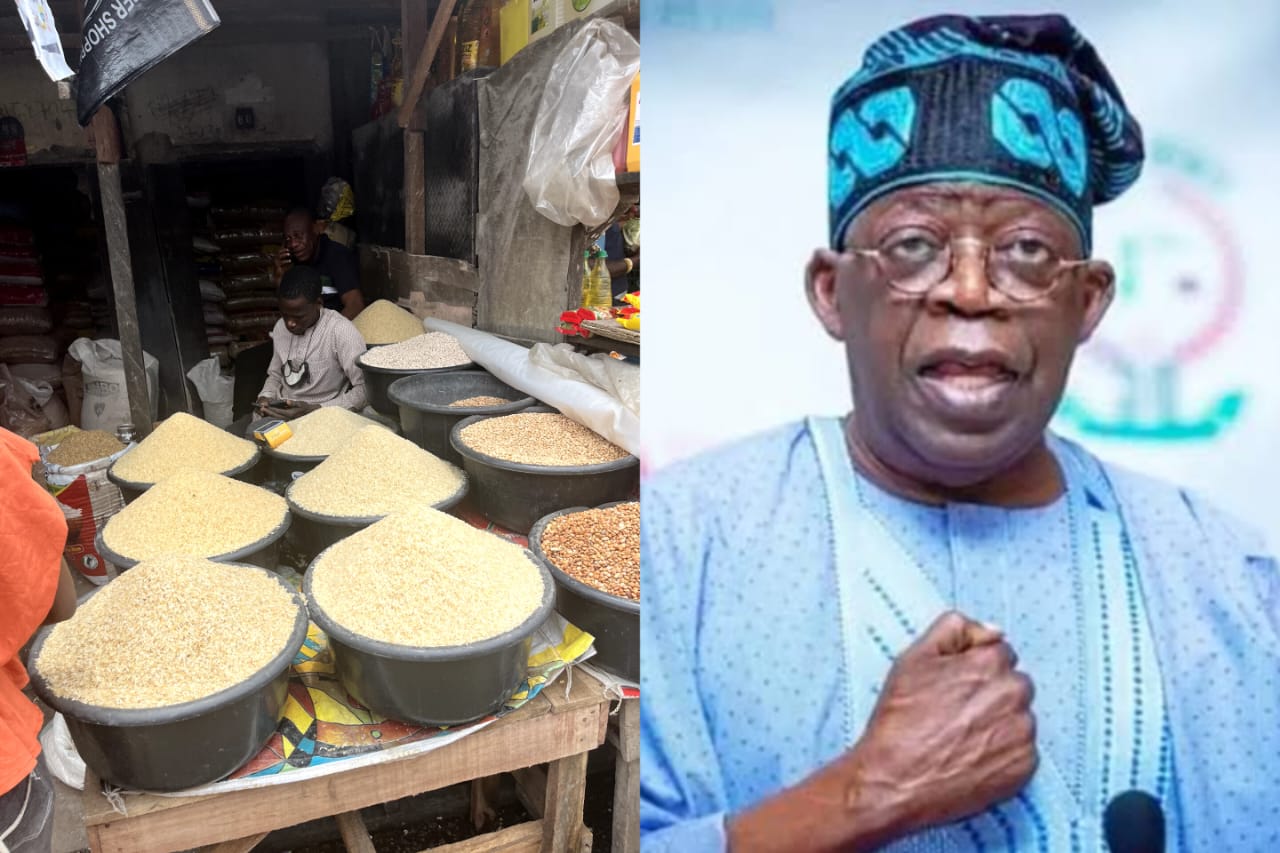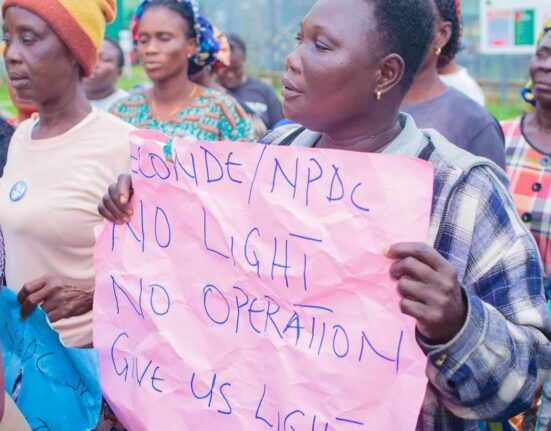Tinubu’s 100 days in office: Delta traders struggle to maintain profit margins due to 40% price increase
As President Bola Tinubu marks his 100 days in office, GbaramatuVoice Market Survey has shown that market women are struggling to maintain their profit margins due to the rising costs.
President Bola Tinubu and Vice President, Kashim Shettima were both sworn in as President and Vice President of Nigeria, respectively on the 29th of May, 2023.
Amid shortage of foreign exchange, Nigeria’s inflation rate rose to 24.08% in July 2023, the highest in years.
The July 2023 rate showed an increase of 1.29% points when compared to the previous month’s which was 22.79%, the National Bureau of Statistics (NBS) said in its Consumer Price Index (CPI) report released recently.
The CPI measures the rate of change in prices of goods and services.
On July 25, 2023, the Central Bank of Nigeria (CBN) raised the Monetary Policy Rate (MPR), which measures interest rate, from 18.5 percent to 18.75%.
The interest rate increase occurred amid soaring food prices and rising cost of transportation occasioned by the removal of subsidy on Premium Motor Spirit (PMS) known as petrol with the price per litre jumping from N184 to about N600, more than 200% hike.
The apex bank said “hiking the interest rate has made a lot of difference in moderating the rate of inflation”.
The development has led to fluctuations in food prices as observed over the past few months, with changes becoming more noticeable in the recent weeks. While traders in major markets across the Warri metropolitan complained about poor patronages.
GbaramatuVoice conducted a survey on Wednesday, September 6, 2023 at Igbudu and polokor markets in Warri, and the results show low customer turnout, as commodities vendors were observed sitting down idle in their various stores.
GbaramatuVoice findings at Polokor market revealed notable price differences before and after the economic event. For instance, the price of staple food items, such as rice, garri and beans, witnessed a moderate increase of approximately 10-15%. This increase was attributed to changes in transportation costs and supply chain disruptions.
Asking some of the market women a few questions about the price rate of foodstuffs and how it has affected them in term of sales and how consumers; “Tell Tinubu that the rate at which the inflation of prices is affecting us, and he should do something about it,” one of the market woman lamented.
The traders complained bitterly about the increment of items that the daily rise is too much and it affects the sales and gain of traders.
At Igbudu market, some of the market women described in detail the increase in prices. A trader said foreign rice rose from N40,000 to between N56,000 and N60,000. While that of Nigerian rice was N38,000 but now N42,000.
A trader identified as mama Efe said other food items like bag of Beans formerly sold for N50,000 is now N63,000. “Bag of Garri before was N14,000 now N30,000 and one basket measurement of custard rubber of garri then N700 to N800 naira, is now been sold for N1,500.
“Also, groundnut oil 4liters N7,500, palm oil 4liters N6,200, Onions in dozens depending on the sizing sells between N250, N500 and N600. While basket of tomatoes initially price between N7,000 and N10,000 depending on the size, now cost between N19,000 to N20,000 and fresh pepper cost N15,000 to N25,000.”
Noodles, also known as indomie, were formerly priced at N4,400 for a small carton and N7,000 for a large carton.
Another trader who spoke with GbaramatuVoice said items like tomatoes have seen an increase of 30% in price. She said; “Palm oil and grand nut oil have seen an increase of 40% in price, making them less accessible to the market people and their customers.
“Meat and poultry prices have risen by 15%, making it harder for the market people to offer these protein sources to their customers at affordable prices.
“Dairy products like milk and cheese have experienced a price increase of 35%, affecting the market people’s ability to provide these essential items to their customers,” she added.
GbaramatuVoice gathered that the market people have been struggling to maintain their profit margins due to the rising costs. Some have had to increase their own prices by 10% to compensate. While the increase in food prices is said to have led to a decrease in customer footfall at the markets, as people find it harder to afford the higher prices.
According to the survey, to cope with the situation, the market people have been exploring cost-saving measures, seeking alternative suppliers, and relying on community support to navigate these challenging times.
However, experts in the local food business, give light on the complex dynamics of changes in food prices in Warri. While the findings highlight the requirement for proactive steps to guarantee food affordability and accessibility in the area.
By Jessica Maku, Deborah Abiye-Sibi & Victory Austine
For publication of your news content, articles, live event coverage, political campaigns, festivals, photos, videos or any other news worthy materials on GbaramatuVoice and to place advert, please call or WhatsApp +2348143459986 or Email: info@gbaramatuvoicenews.press
Support Quality Journalism in the Niger Delta Region
Join us in our mission to bring development journalism, cultural preservation, and environmental awareness to the forefront. Your contribution makes a difference in the lives of the people of the Niger Delta. Donate today and be a part of the change!








